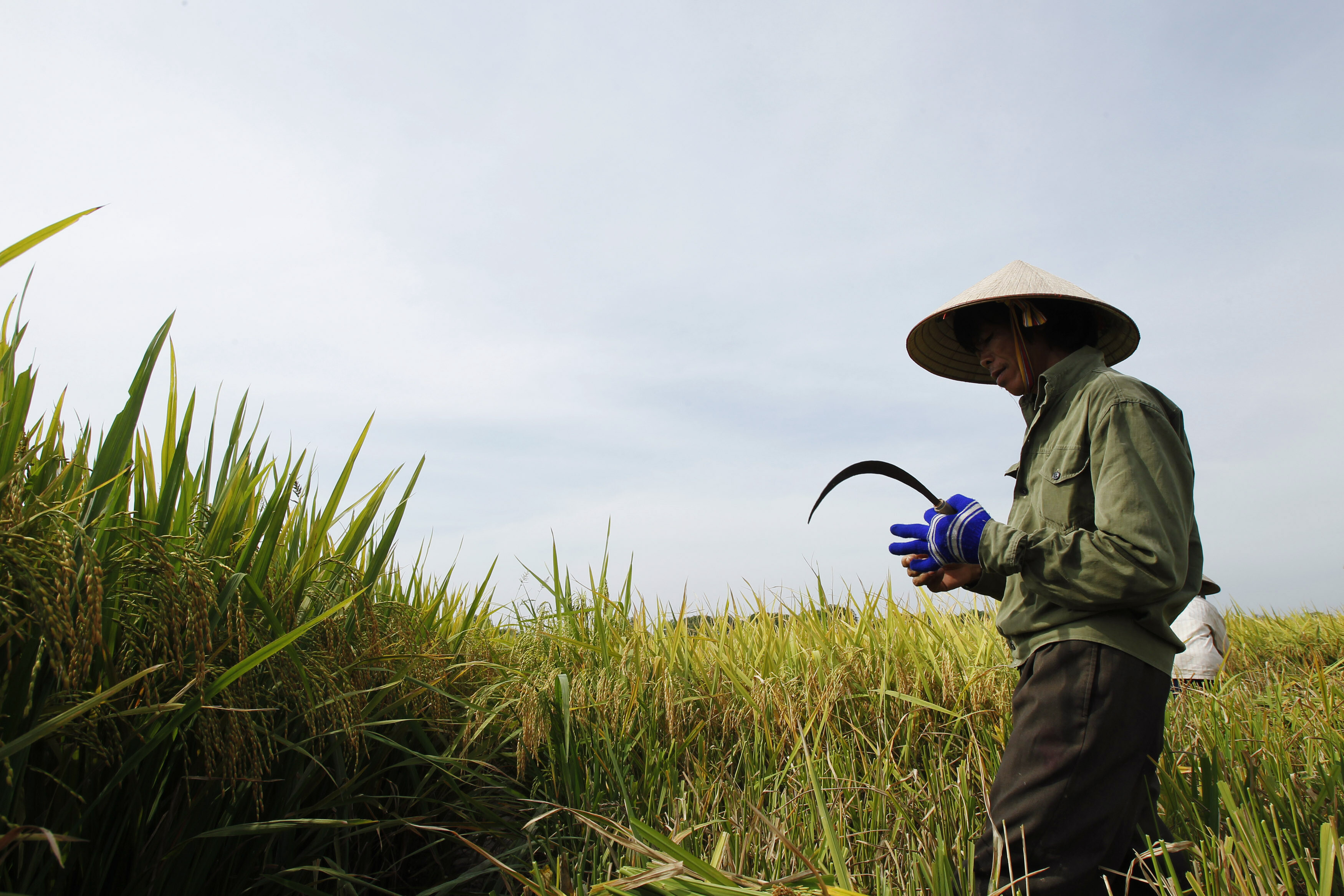Meningitis, malaria and a new approach to health crises

Children wait for a vaccine in La Paz, Bolivia Image: REUTERS/David Mercado
In 1996, a terrifying meningitis epidemic sickened a quarter of a million people and caused more than 25,000 deaths in sub-Saharan Africa. It wasn’t the first time this horrific disease had devastated the region. Between 1988 and 2010, more than one million people contracted the disease – victims of the cyclical meningitis A epidemics that have plagued Africa for decades.
Remarkably, meningitis A is no longer a major public health issue in sub-Saharan Africa. Thanks to a vaccine developed by the Meningitis Vaccine Project, a multi-sector partnership between the World Health Organization, PATH (the global health NGO that I lead), the Bill & Melinda Gates Foundation, and Serum Institute of India, Ltd, India’s largest biotech company, only four confirmed cases of meningitis A were reported in 2013.
One of the remarkable global health success stories of our time, the Meningitis Vaccine Project is also an inspiring example of the role that multi-sector partnerships like those highlighted in the World Economic Forum’s new report Social Innovation: A Guide to Achieving Corporate and Societal Value can play in transforming health in poor communities around the world.

From pyramid to diamond
There’s a reason why this is such a promising moment to emphasize the positive impact that the private sector can have on global health. From China to South Africa to India and beyond, economic growth over the past 30 years has lifted hundreds of millions of people out of poverty and into the middle class.
To fully appreciate what this means for global health, it helps to picture the pyramid that economists and demographers have used for years to represent a world in which a large percentage of people live in extreme poverty. As expanding prosperity reduces the ranks of those at the very bottom of the pyramid, an attenuated diamond that is narrow at the bottom and widest just below the center is becoming a more accurate way to visualize the world.
This fundamental transformation of the world’s economic geometry creates opportunities to tackle global health in new ways. Instead of just assuming that nonprofit global health organizations funded by international donors should deliver aid to the poor, we can begin to think about ways to reach emerging markets of health-care consumers – sometimes at subsidized prices and almost always in partnership with the private sector.
These partnerships will come in many forms to meet the wide range of global health challenges that lie ahead. Already we’re seeing the increased involvement of the private sector in global health through traditional corporate philanthropy, corporate social responsibility, shared value engagements, social entrepreneurship, and impact investing – all valuable models for engagement for different purposes.
As we move forward in the quest to wipe out diseases like meningitis A, multi-sector partnerships like the Meningitis Vaccine Project will be essential. That’s because creating social innovation that really matters requires disruptive approaches that have a significant positive impact on the lives of large numbers of people, often with a focus on the most vulnerable. I believe this can best be achieved through partnerships that draw on the business and technical expertise of for-profit companies, and incorporate some of the market-based incentives of the private sector.
Lessons from India and Zambia
Social Innovation: A Guide to Achieving Corporate and Societal Value highlights some noteworthy examples of the impact of social innovation on global health, including Novartis’s Healthy Family program in India, which trains local men and women as health educators to work with doctors to organize mobile clinics in remote villages. From 2010 to 2013, the program provided health education to more than 10 million people and direct treatment to 760,000 patients. Building on the success of the program in India, Novartis has expanded the program to Vietnam and Kenya.
The report also cites Becton, Dickinson and Company (BD), the world’s largest syringe manufacturer. In the 1980s, the company identified safer needle-based devices as a key area for future business expansion and social impact. Now, innovative syringes and IV devices are an important source of growth.
PATH, which has been long been a focused on aligning our work to save lives and improve health with the interests of global corporations in order to deliver disruptive solutions at scale, played a key role in the development of safer devices at BD. In the 1980s, we began working on new technologies to make it easier to administer injectable drugs and vaccines in low resource settings. That effort led to the Uniject device, which PATH licensed to BD in 1996. As part of the license agreement, BD supplies Uniject devices to vaccine and drug producers at preferential prices in low income countries, and instead of paying royalties to PATH, the company donates 500,000 Uniject devices annually to our global health programs.
As we did in the Meningitis Vaccine Project, we are working with private sector partners to make progress in the fight to eliminate infectious diseases, including malaria, which kills more than 600,000 people every year. Zambia is one country that has been particularly successful in controlling malaria. Today, a PATH-supported partnership has driven annual infection rates in some parts of the country to fewer than 5 people in 1,000, and near-elimination of the disease is within reach.
To get there, we are working with Seattle-based Tableau Foundation, an initiative of employees of the data visualization company Tableau Software, to use cutting-edge data analysis and visualization software to track new cases and prioritize the deployment of resources to prevent the spread of the malaria parasite. To support this work, Tableau Foundation has contributed software and expertise worth more than $1 million over five years.
New wealth, new diseases
Even as we make progress in tackling infectious diseases that disproportionately affect poor communities, a dramatic increase in non-communicable diseases like diabetes and high blood pressure is creating new challenges in low and middle income countries. To begin to address this issue, PATH and Novo Nordisk launched an initiative last year in Kenya and Senegal to understand what it will take to provide access in developing nations to the essential medicines and technologies needed to diagnose and treat non-communicable diseases, beginning with diabetes. And in Bangladesh, Novo Nordisk is working with the World Diabetes Foundation and the Bangladesh Diabetes Association to expand manufacturing and improve distribution of insulin.
These are just a few examples of how the global health sector is engaging with companies across industries and from around the world – from small local manufacturers to large multinationals – to drive corporate social innovation that will address inequality in health. Each partnership is different. To fully utilize the resources, knowledge, and experience of a broad range of partners, it takes a dynamic approach that can adapt to local health needs and markets, and incorporate the goals of every organization involved. Working together to do this successfully is the key to delivering the social innovations needed to continue to transform health around the world.
Don't miss any update on this topic
Create a free account and access your personalized content collection with our latest publications and analyses.
License and Republishing
World Economic Forum articles may be republished in accordance with the Creative Commons Attribution-NonCommercial-NoDerivatives 4.0 International Public License, and in accordance with our Terms of Use.
The views expressed in this article are those of the author alone and not the World Economic Forum.
Stay up to date:
Future of Global Health and Healthcare
Forum Stories newsletter
Bringing you weekly curated insights and analysis on the global issues that matter.







